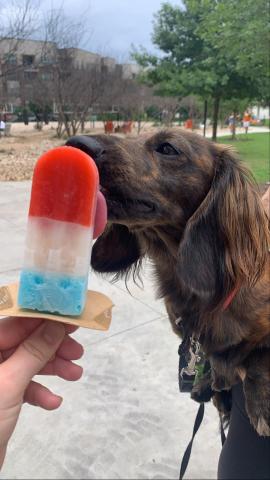As a responsible pet owner, it’s essential to be aware of what your furry friend can and cannot eat. While dogs may be inclined to share your snacks and meals, not all human foods are safe for them. In this article, we’ll address a comprehensive list of commonly asked questions about what dogs can eat and what should be avoided to keep them healthy and happy.
Can my dog eat watermelon, apples, peaches, cherries, strawberries, bananas, blueberries, oranges, pineapple, raspberries and cantaloupe?
Yes, dogs can enjoy these fruits in moderation. These fruits are generally safe, providing valuable nutrients and a sweet treat. Be sure to remove any seeds or pits from cherries and peaches, as they contain small amounts of cyanide, which can be harmful.
Can my dog eat cat food?
No, dogs should not eat cat food regularly. Cat food is formulated differently from dog food, and its high protein content might not be suitable for dogs. Occasional nibbles won’t harm them, but a steady diet of cat food is not recommended.
Can my dog eat tomatoes?
Tomatoes are safe for dogs in small amounts; however, the green parts, stems and leaves of the tomato plant contain a toxic substance called solanine, so it’s best to avoid these parts.
Can my dog eat popcorn?
Plain, air-popped popcorn is safe for dogs, but avoid adding salt, butter or oil. Popcorn is a low-calorie, high-fiber snack that can be given to your dog in moderation.
Can my dog eat cucumbers?
Yes, dogs can enjoy cucumbers. They are low in calories and make a healthy and refreshing treat. Just be cautious with large quantities, as excessive cucumber intake may lead to an upset stomach.
Can my dog eat Doritos?
No, Doritos and other salty, seasoned snacks are not suitable for dogs. The high salt and flavoring content can lead to sodium toxicity and other health issues.
Can my dog eat broccoli, corn, sweet potatoes, celery, green beans and oatmeal?
These foods are safe for dogs in moderation. They provide essential nutrients and can be included in your dog’s diet as long as they are cooked and not seasoned with harmful ingredients.
Can my dog eat shrimp, tuna, salmon and raw chicken?
Small amounts of cooked shrimp, tuna and salmon are safe for dogs, as they are rich in protein and omega-3 fatty acids. However, raw chicken poses a risk of bacterial contamination and should be avoided.
Can my dog eat grapes and almonds?
No, grapes and raisins are toxic to dogs and can cause kidney failure. Almonds are not toxic, but their hard texture can pose a choking hazard. It’s best to avoid them.
Can my dog eat cheese?
Cheese is safe for dogs in moderation. It’s a good source of protein and calcium. However, some dogs may be lactose intolerant, so watch for any signs of digestive distress.
Can my dog eat pistachios?
No, pistachios are not suitable for dogs. They can be difficult to digest and may lead to upset stomach or pancreatitis.
Can my dog eat yogurt?
Yogurt is safe for dogs, but opt for plain, unsweetened yogurt without any artificial additives. It can provide probiotics and calcium, which are beneficial for digestion.
Can my dog eat mushrooms?
Mushrooms are generally not recommended for dogs, as some varieties can be toxic. It’s safer to avoid them unless you are sure they are safe and non-toxic.
Can my dog eat raw eggs?
Raw eggs may contain salmonella and should be avoided. Cooked eggs are a safe and nutritious option for your dog.
What human food is healthy for dogs?
In addition to the safe foods mentioned above, lean meats, cooked rice and cooked pasta are generally healthy options for dogs in moderation. Always avoid foods high in salt, sugar and seasonings.
What dog food is most recommended by vets?
Vets often recommend high-quality commercial dog food that meets the specific nutritional needs of your dog’s breed, age and size. Look for brands with real meat as the main ingredient, minimal fillers and no artificial additives.
Knowing what your dog can and cannot eat is essential for their well-being. While many human foods can be shared with your furry companion, it’s crucial to be selective and cautious, offering safe and nutritious options to keep your dog happy and healthy. Always consult your veterinarian for personalized dietary advice and guidance.


















